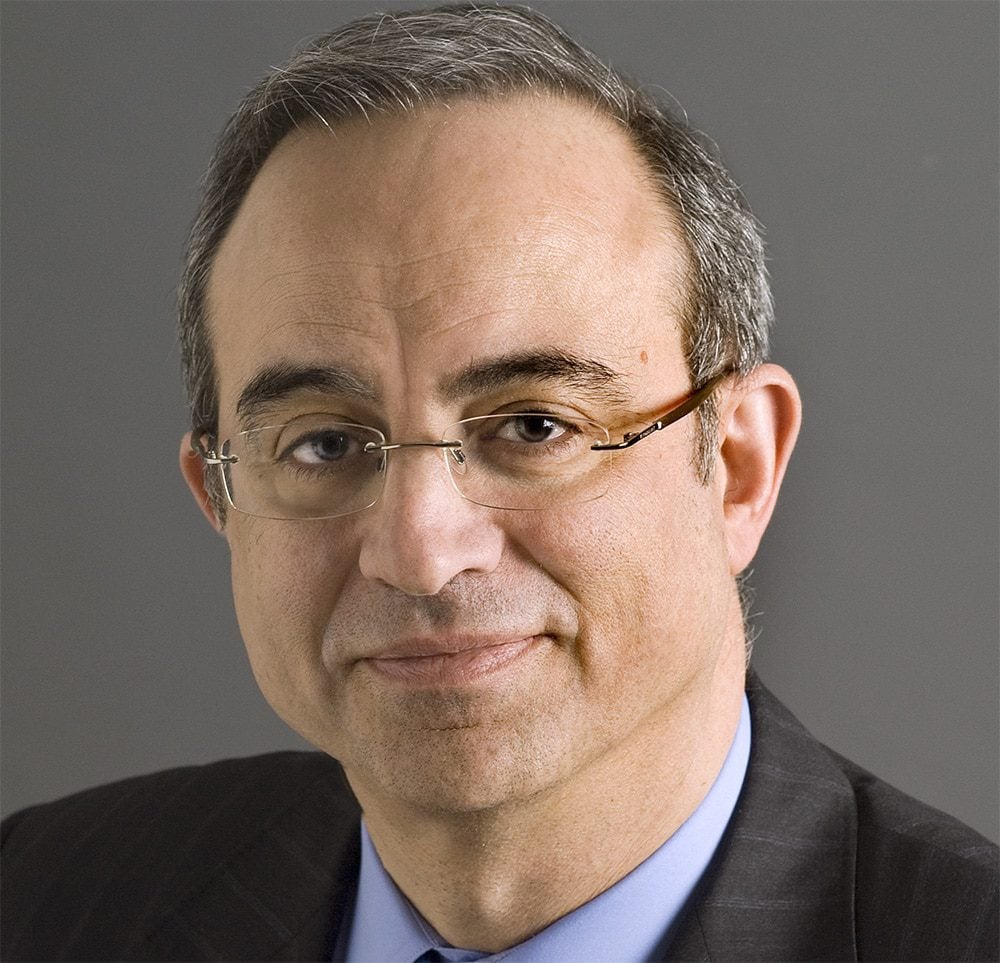
Marwan Muasher is the former deputy prime minister and foreign minister of Jordan. He studied electrical and computer engineering at Purdue University in the United States, but to observers he seemed naturally suited to the careers he followed in journalism, diplomacy, politics and economic development.
Nearly a decade ago, Muasher was in charge of preparing for Jordan a long-term political, economic, and social-reform plan called the National Agenda, which, he said, aimed to improve the living conditions of Jordanians by expanding the decision-making process and reducing poverty and unemployment.
He is presently vice president for studies at the Carnegie Endowment for International Peace, where he oversees Middle East research carried out in Washington and Beirut.
Born in 1956, he began his career as a journalist at the Jordan Times, Jordan’s only English-language newspaper, and then moved into government to work in communications at the planning ministry and later as a press adviser to the prime minister before being named director of the information bureau at the Jordanian embassy in Washington.
A year after the 1994 peace treaty with Israel, he was named Jordan’s first ambassador in Tel Aviv, as he had been engaged in negotiating the peace treaty between Jordan and Israel when he was in the Jordanian embassy in Washington and had close ties with Abdel Salam Majali, Jordan’s PM at that time. In 1996 he was named minister of information and the government’s spokesperson.
A year later, he returned to Washington, this time as ambassador, serving a term of five years. Muasher is credited with being the negotiator of the free-trade agreement (FTA) between Jordan and the US, making the kingdom as the first Arab country to sign an FTA with the US.
Between 2002 and 2004 he served as foreign minister and was promoted to deputy prime minister between 2004 and 2005. The 59-year-old was the first Christian in Jordan to hold such a high-ranking post (Jordan’s constitution does not require that certain government positions, including that of prime minister, be filled by a Muslim). He was dropped as deputy PM when the government of Adnan Badran resigned in 2005.
A decade after leaving his government posts, Muasher is still considered by many as a reformer who calls for substantive and wider political and economic reforms in Jordan and in the rest of the Arab world. He is currently an advocate for pluralism and is an outspoken opponent of any attempt to exclude certain political parties, particularly the Muslim Brotherhood.
In research papers he wrote in May 2011, following the outbreak of the Arab Spring, Muasher said the protests that spread in several Arab countries in the spring of 2011 were a call for greater reform.
He says that the National Agenda of 2005, prepared by 450 Jordanian stakeholders and experts in various fields, represented a real chance for substantial reform, as the document suggested solutions with deadlines for their achievement.
He says that the reform process has slowed down since 2005, blaming successive governments for paying lip service to reform while avoiding action. He charges that the one-person, one-vote election law was behind the creation of weak parliaments in recent years, while a lack of serious efforts at reform was to blame for corruption and the lack of trust in public institutions.
The current voting system in Jordan allows a voter to select one candidate only in his or her district. Muasher and various experts and activists see the elections law as the main cause of weak parliaments, as people are not given the option of electing qualified candidates. The law encourages tribalism, as people are forced to select MPs from the same family or district.
In the lectures he delivers and the debates he takes part in, Muasher criticizes the slow pace of reform, politically, economically, and socially, and he recently criticized the deterioration of higher education in the kingdom.
According to Muasher, Jordan will continue to face financial and economic difficulties and social distress will continue, if reform continues at a slow pace.
Many people here disapprove of Muasher and accuse him of expressing pessimistic views because he is no longer a decision maker. Some say he could have made the changes he now calls for while he was in office.
In response to his critics, Muasher says he hopes to see people argue on content rather than personalizing issues. The former official has pointed his finger at what he terms a group of political elites and bureaucrats for thwarting the reform efforts he oversaw through the National Agenda, as they feared that such efforts would move the country away from a decades-old rentier system to a merit-based one.
“This group accurately predicted that reform would chip away, even if gradually, at privileges it had acquired over a long period of time in return for its blind loyalty to the system. It thus stood firm not just against the reform efforts themselves, but also in opposition to the king’s own policies,” Muasher wrote in a research paper published by Carnegie under the title “A Decade of Struggling Reform Efforts in Jordan.”
Muasher believes that governments in Jordan should come to power through parliamentary elections, giving the public the authority to select a government after judging its agenda. Muasher has decided to stay in Amman, and sources close to him say that he returned to Jordan to serve his country, this time outside of government.
In the middle of last year, Muasher wrote on his Facebook page that he decided to return to Amman in a bid to work for a better future by engaging more with youth, but he ruled out any ambition to return to government posts and any plans to establish a political party.
The sources say Muasher does not plan to establish a political party but that he will continue to advocate for further political and economic reforms, through lectures or published articles.


